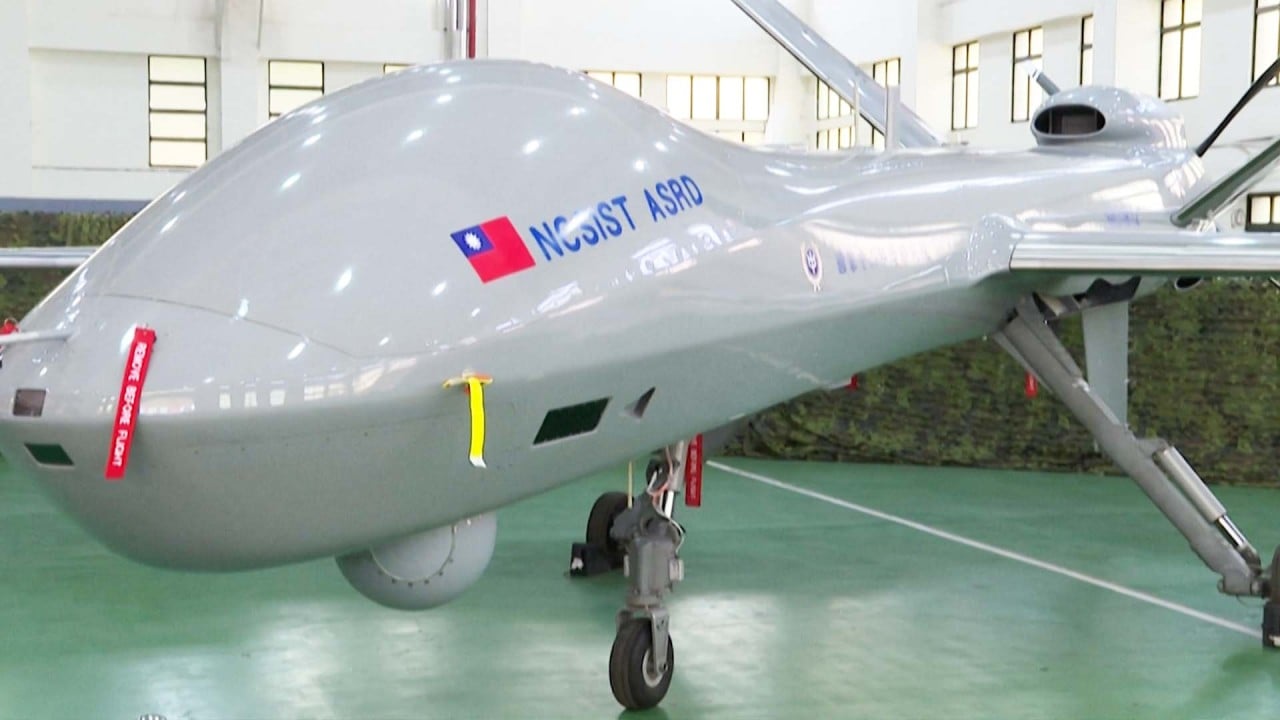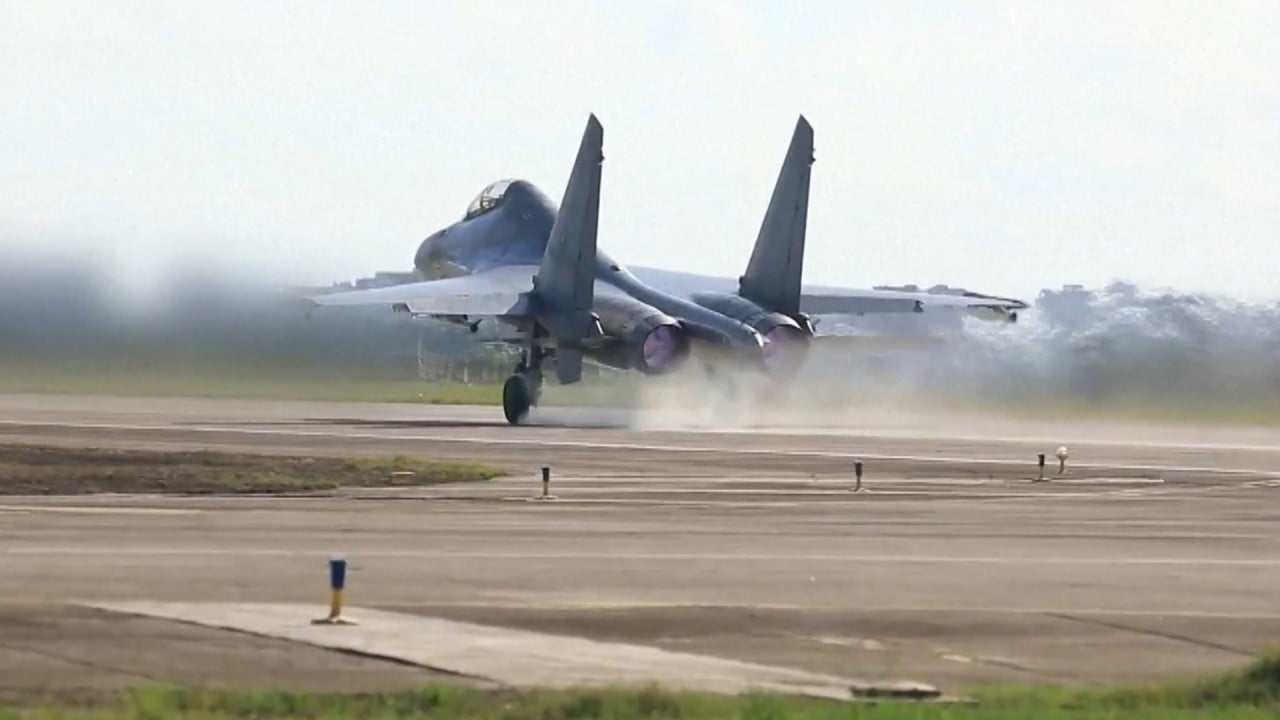
Pentagon bill includes up to US$10 billion in grants and loans to Taiwan for arms sales
- The Taiwan Enhanced Resilience Act, part of Defence Department budget legislation, would mark the first time the US would directly finance weapons for Taiwan
- But the bill also drops earlier proposals, like renaming Taipei’s de facto US embassy and designating Taiwan a ‘major non-Nato ally’, seen to antagonise Beijing
US legislation to boost security cooperation with Taiwan, authorising up to US$10 billion in spending, has been added to a must-pass defence bill – but other controversial Taiwan-related measures have been deleted.
The National Defence Authorisation Act (NDAA) for the coming fiscal year includes the Taiwan Enhanced Resilience Act (TERA), which authorises US$2 billion in annual military aid for five years under an inter-agency programme that provides grants and loans to other countries to purchase US military equipment, services and training. It also authorises another US$1 billion annually of emergency defence assistance to Taiwan.
![Senator Bob Menendez, Democrat of New Jersey, who chairs the Foreign Relations Committee, said the bill would “[set] the theatre for real deterrence by implementing a more resilient strategy for Taiwan”. Photo: Getty Images/AFP](https://cdn.i-scmp.com/sites/default/files/d8/images/canvas/2022/12/08/2be41f20-d373-4681-9e0f-257137e086a1_89e8f761.jpg)
According to the NDAA language, TERA aims to “strengthen the United States-Taiwan defence relationship” and “prevent the People’s Republic of China from decapitating, seizing control of, or otherwise neutralising or rendering ineffective Taiwan’s civilian and defence leadership”.
The bill, which is expected to pass the Senate and House of Representatives this month, would directly finance US weapons sales to Taiwan for the first time. It also establishes the US’s first Taiwan-specific defence modernisation programme.
The bill also calls for strategies to support Taiwan’s participation in international organisations and to respond to Chinese influence and information operations targeting the island.
In a statement Wednesday, Senator Bob Menendez, the New Jersey Democrat who is chairman of the Foreign Relations Committee, said the national defence bill would be one of the most consequential in years “for setting the theatre for real deterrence by implementing a more resilient strategy for Taiwan, should China continue pursuing a collision course toward war”.
The Taiwan-related provisions in the NDAA will strengthen Taiwan’s security in “meaningful and impactful ways,” said Bonnie Glaser, a China expert at the German Marshall Fund of the United States.
She noted that the legislation excludes several “primarily symbolic and more controversial provisions” that had been included in the earlier Taiwan Policy Act.
TERA is a reworked version of that act, which lawmakers had described as “the most comprehensive restructuring of US policy towards Taiwan” since Washington normalised relations with Beijing and cut off official ties with Taipei in 1979.
The new bill no longer includes the provision to rename Taiwan’s de facto embassy in Washington – the Taipei Economic and Cultural Representative Office – the Taiwan Representative Office. Nor does it contain language authorising sanctions against China’s top political leadership and biggest banks should Beijing engage in a “significant escalation in aggression”.

It also does not designate Taiwan as a “major non-Nato ally” for purposes of weapon transfers to the island – a title Israel, Japan and South Korea, among other nations, hold.
The new text drops a provision that would have required the Pentagon to establish a “comprehensive training programme” with the Taiwanese military but authorises a military student exchange programme.
It retains Taiwan Policy Act provisions intended to accelerate the contracting process for arms sales to the island but drops a requirement that US arms manufacturers must “expedite and prioritise” the production of weapons Taiwan buys ahead of other customers.
Beijing regards Taiwan as a rogue province to be eventually united with the mainland, by force if necessary. Beijing opposes other nations’ contacts with Taiwan government officials.
The new bill rejects earlier provisions that would have amended the Taiwan Relations Act
The Senate Foreign Relations Committee had advanced the Taiwan Policy Act 17-5 in September; a House bill was introduced the same month. The actions followed the large-scale military exercises China conducted in the Taiwan Strait in response to US House Speaker Nancy Pelosi’s trip to Taipei in August.
Supporters of the bill said the US should do more to help the island, while others were concerned that some provisions would antagonise Beijing without doing much for Taiwan.
The NDAA annually authorises Pentagon funding, activities and the national defence policy agenda. As a “must-pass” bill, the NDAA often attracts additional non-defence policy proposals.
For example, Republicans threatened to hold up its passage if the Defence Department did not drop its requirement that service members be vaccinated against Covid-19. Several media outlets reported on Wednesday that Democrats had agreed to the demand.
The latest NDAA, which was released on Tuesday night, was the result of months of negotiations between Republicans and Democrats in the House and Senate. If passed as expected, it will be sent to US President Joe Biden to sign into law.
But even when passed, spending remains an open question. Authorisation bills like the NDAA only create programmes. Congress must pass appropriations bills to legally grant the government authority to spend federal money – which it has yet to do for the next fiscal year.
Senator James Risch of Idaho, the lead Republican on the Foreign Relations Committee and a champion of the earlier Taiwan Policy Act, said last week he planned to lobby for a matching appropriation.
But Senator Chris Coons, the Delaware Democrat who chairs the subcommittee overseeing funding for foreign operations, told Defence News that demand for Taiwan aid is competing against other “dramatically growing” responsibilities.



